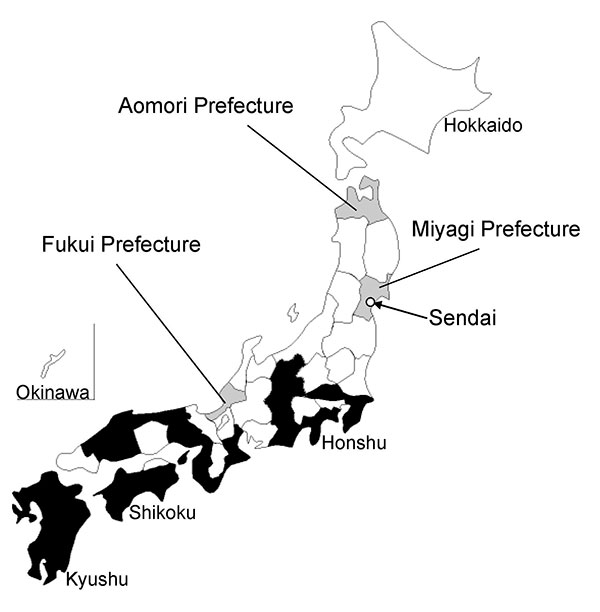Volume 16, Number 8—August 2010
Dispatch
Human Rickettsia heilongjiangensis Infection, Japan
Figure 2

Figure 2. Distribution of reported Japanese spotted fever cases in Japan (≈2008). Prefectures in which Japanese spotted fever cases were reported up to 2008 are shown in black; Fukui, Aomori, and Miyagi prefectures are shown in gray. The map was drawn by using data on reported infectious diseases in Japan (http://idsc.nih.go.jp/idwr/pdf-j.html).
Page created: March 30, 2011
Page updated: March 30, 2011
Page reviewed: March 30, 2011
The conclusions, findings, and opinions expressed by authors contributing to this journal do not necessarily reflect the official position of the U.S. Department of Health and Human Services, the Public Health Service, the Centers for Disease Control and Prevention, or the authors' affiliated institutions. Use of trade names is for identification only and does not imply endorsement by any of the groups named above.